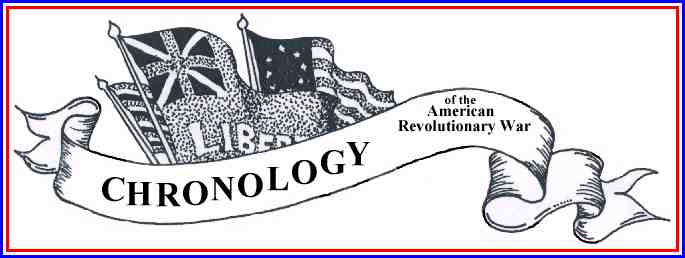



![]() It is interesting to consider the idea that the original thirteen colonies, which gained their independence from Great Britain in 1783, might have been the original fourteen colonies if the Continental Congress would have more seriously considered a petition from the inhabitants of the colony of Nova Scotia. On Thursday, 02 November, 1775 a petition was presented before the Congress in which it was stated that "The Inhabitants of Paピamaquaddy in Nova Scotia, having choテn a com(mitt)ee of Safety, and having, by their petition, applied to Congreピ to be admitted into the aピociation of the North Americans, for the preテrvation of their rights and liberties." A committee of five was appointed to consider the petition. The matter was brought up during the session held a week later, on 09 November, but was not resolved. It again was discussed on the 10th, at which time the decision was made to send two persons to Nova Scotia to:
It is interesting to consider the idea that the original thirteen colonies, which gained their independence from Great Britain in 1783, might have been the original fourteen colonies if the Continental Congress would have more seriously considered a petition from the inhabitants of the colony of Nova Scotia. On Thursday, 02 November, 1775 a petition was presented before the Congress in which it was stated that "The Inhabitants of Paピamaquaddy in Nova Scotia, having choテn a com(mitt)ee of Safety, and having, by their petition, applied to Congreピ to be admitted into the aピociation of the North Americans, for the preテrvation of their rights and liberties." A committee of five was appointed to consider the petition. The matter was brought up during the session held a week later, on 09 November, but was not resolved. It again was discussed on the 10th, at which time the decision was made to send two persons to Nova Scotia to:
"enquire into the フate of that colony, the diパoナtion of the inhabitants towards the American cauテ, and the condition of the fortifications, Docks, yards, the quantity of artillery and warlike フores and the number of バldiers, ヂilors and ドips of war there..."
![]() The subject of admitting Nova Scotia into the union of "North American" colonies was put off until the 24th of April, 1776. The committee chairman, Benjamin Harrison, reported that there had not been sufficient time to review the petition of the colony of Nova Scotia. It was resolved that the Congress would form itself into a "committee of the whole" the following day to discuss the matter, but more pressing items arose and the petition of Nova Scotia was again set aside.
The subject of admitting Nova Scotia into the union of "North American" colonies was put off until the 24th of April, 1776. The committee chairman, Benjamin Harrison, reported that there had not been sufficient time to review the petition of the colony of Nova Scotia. It was resolved that the Congress would form itself into a "committee of the whole" the following day to discuss the matter, but more pressing items arose and the petition of Nova Scotia was again set aside.
![]() On 25 April, 1777 another petition for military aid was read before the Congress. That petition came from Robert Forster of the County of Cumberland in Nova Scotia. It was referred to the Board Of War for consideration. On 13 May, 1777 the Congress finally arrived at a resolution which stated that:
On 25 April, 1777 another petition for military aid was read before the Congress. That petition came from Robert Forster of the County of Cumberland in Nova Scotia. It was referred to the Board Of War for consideration. On 13 May, 1777 the Congress finally arrived at a resolution which stated that:
"the council of the Maピachusetts bay be requeフed to conナder the caテ of the inhabitants of Cumberland and Sunbury counties in Nova Scotia, who are ブfferers by their attachment to the American cauテ and to deviテ and put into execution at continental expence ブch meaブres as the ヂid council ドall think practicable and prudent for the relief of the ヂid ブfferers."
![]() The Congress authorized assisting in removing any families from that colony to places of greater safety if they wished. The matter was eventually laid to rest on 21 May, 1778 when Congress resolved that:
The Congress authorized assisting in removing any families from that colony to places of greater safety if they wished. The matter was eventually laid to rest on 21 May, 1778 when Congress resolved that:
"the wreフing of Nova Scotia from the Britiド power and uniting the ヂme to theテ States is... a very deナrable object; but that the propriety of making this attempt at the preテnt criナs テems doubtful; and upon the whole, it appears moフ wiテ to wait a while, until the event of a war taking place between France and Great Britain, and the conテquences that (it) may have upon the Britiド force on this continent, ドall render an attempt upon Nova Scotia more likely to ブcceed."
![]() One can only wonder at why the Continental Congress did not act upon the petition by the colony of Nova Scotia sooner than it did when it could have succeeded. Perhaps it was because only the county of Cumberland was really pro-American and the Congress may have foreseen too much Loyalist opposition. Nova Scotia remained British and became a haven for exiled American Loyalists.
One can only wonder at why the Continental Congress did not act upon the petition by the colony of Nova Scotia sooner than it did when it could have succeeded. Perhaps it was because only the county of Cumberland was really pro-American and the Congress may have foreseen too much Loyalist opposition. Nova Scotia remained British and became a haven for exiled American Loyalists.
